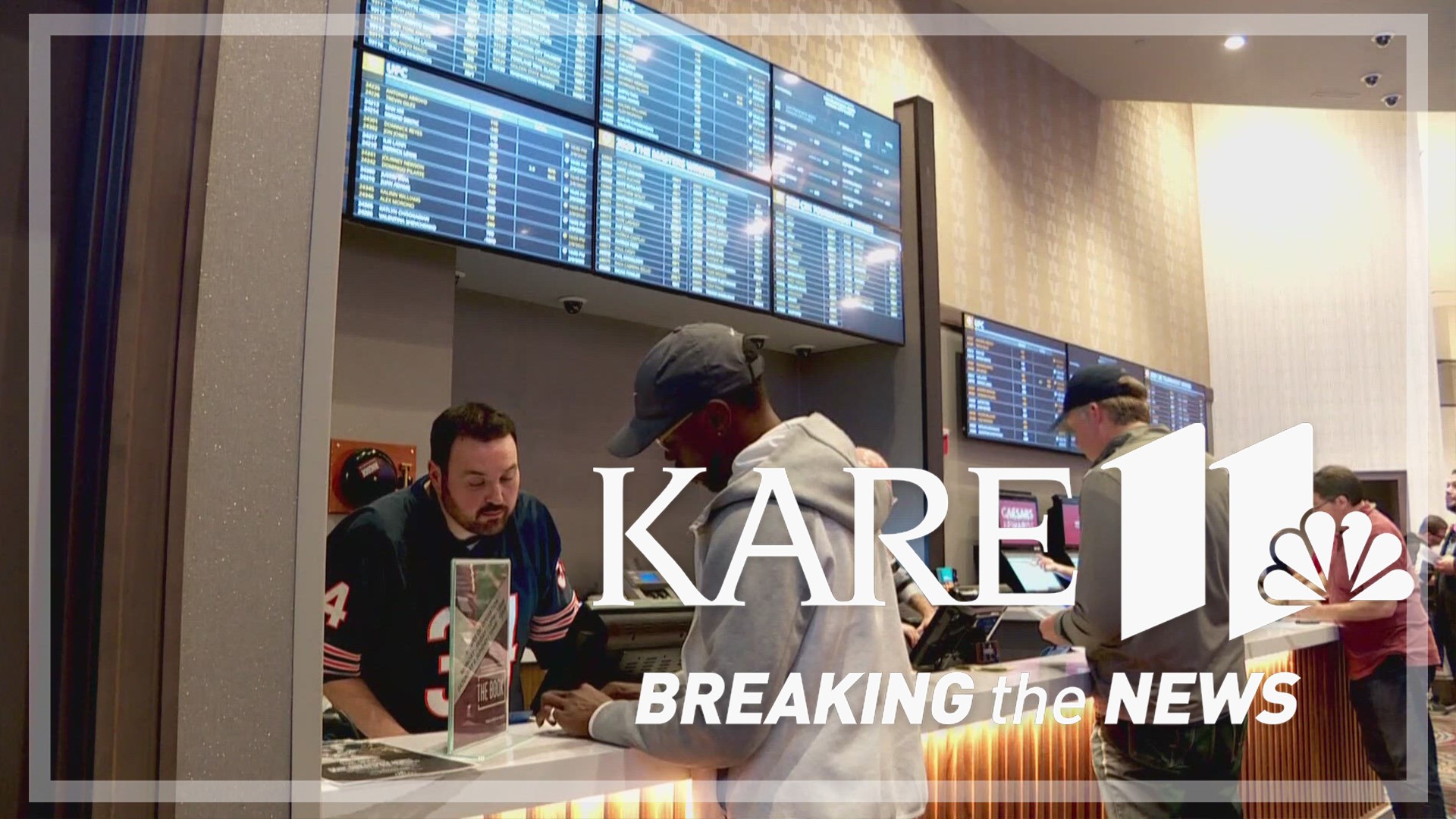MINNEAPOLIS — Minnesota has been standing on the sidelines of a sports betting boom ever since the Supreme Court paved the way for it nationwide in 2018.
Now, one day after a record number of Americans placed bets on the Super Bowl, Minnesota Governor Tim Walz believes this could be the year that the legislature comes together to figure out a way for the state to capitalize on what has become a $100 billion industry.
"I would guess they'll probably get close to getting something done," Walz said, when asked about the prospects of sports betting during the first day of the 2024 legislative session. "It seems, to me, like this is probably the year to talk about that in a non-budget year."
Republican Senator Jeremy Miller was the first legislator on the board, filing the Minnesota Sports Betting Act 2.0 back in January, after version one failed last session.
"I'm feeling pretty optimistic," Miller said. "Minnesotan's are already betting on sports. They're just doing it in other states or they're doing it illegally, so now is the time to get it done so we can regulate the market as well as help generate some sales tax revenue."
Speaking of that revenue, the Minnesota Department of Revenue projects sports betting could bring $400 million in revenue within about three years. Senator Miller's bill calls for a 15% state tax, which would mean the state could expect to see about $60 million in new tax revenue.
A DFL-sponsored bill could alter that math a bit.
"We currently have a 10% tax rate in the bill I'm offering," said Senator Matt Klein. "That would be 40 million dollars a year to the state's coffers."
Sen. Klein is also giving the legislation a second shot, after the clock ran out on a bill he worked on last session. Since then, he says he believes they have addressed resistance from those concerned about problem gambling.
"The numbers show that in states that have legalized and state's that haven't legalized, participation rates in sports wagering are the same," Klein said. "So people are doing it anyway and we might as well make it safe, make it structured and make it legal."
Historically that's been easier said than done, considering Minnesota's complicated relationship with gambling licensing, which is divided between several stakeholders.
"It's really important that we keep tribal exclusivity over the sports wagering licenses," Klein said.
Sen. Miller's bill would get creative with licensing in order to expand some of the access to Minnesota's race tracks, but with the DFL still holding the cards with a majority in all three legislative branches, he admits options might be limited.
"My preference would be to give the tribes a license, as well as the tracks, the (professional) teams and even the charities," Miller said. "The reality is, the votes aren't there in the legislature right now to make that happen, so instead of focusing or complaining on what's not possible, with the 2.0 proposal I really wanted to focus on what is possible."
"I'm very optimistic," Sen. Klein said. "Minnesotans want this, Republicans want this, Democrats want this. Senator Miller's bill was a serious effort at finding a solution this year, and we're hearing that from all interested parties – the tracks, the tribes – people want to get this done and they want to get it done this session."
And if they do, the Governor says he won't stand in the way.
"I think the issue still is, can they get a bill through the House and the Senate that meets all the constituency needs? If they do, I've said I will sign it," Walz said.
On Monday, Andy Platto, Executive Director of the the Minnesota Indian Gaming Association released a statement about the prospects of the current sports betting bills.
"The Minnesota Indian Gaming Association (MIGA) supports state efforts to authorize sports wagering both at tribal gaming properties and through online/mobile platforms. Tribes are best positioned to provide this new offering to the state’s consumers. MIGA and its members will be closely following the progress of state legislation and look forward to working with other stakeholders to develop an approach that benefits Minnesotans while protecting the Indian gaming operations that tribal and rural communities rely on for jobs and economic health.”
Watch more local news:
Watch the latest local news from the Twin Cities and across Minnesota in our YouTube playlist:

